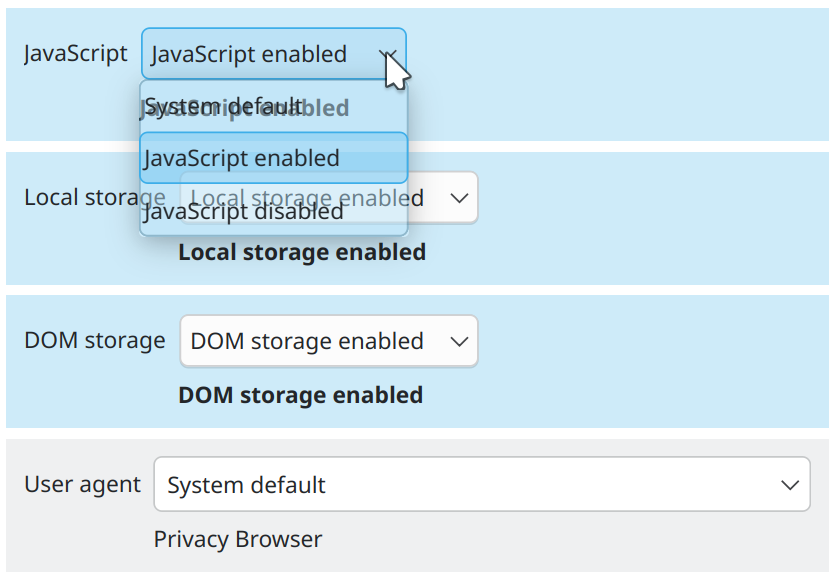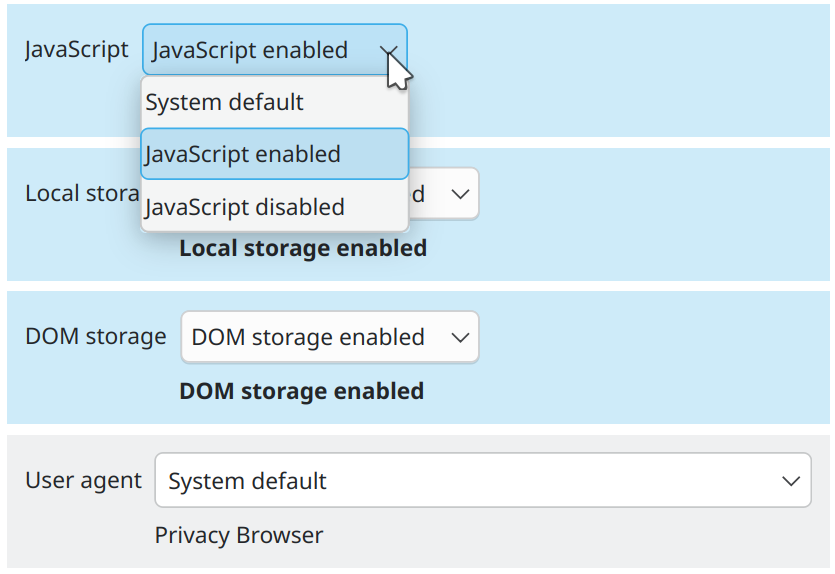Privacy Browser PC 0.8 was released on 30 January 2025. From the beginning, there have been problems when changing the user agent. Doing so would cause the current page to reload, interrupting the loading of the new URL. I have finally implemented a solution to this that works around Qt WebEngine’s buggy behavior. Basically, the system detects when a reload relating to the changing of the user agent interrupts the loading of a new URL and tries again after the new user agent is in place. Fixing this corrected three seemingly unrelated bugs that affected the loading of domain settings in a new tab, the loading of default settings in a blank tab, and problems with refresh that manifested with the Qt 6 transition in Privacy Browser PC 0.7.
I was also able to figure out how to prevent links with an _blank target from opening in a new tab automatically. This has been my goal for a long time, and is a feature already implemented in Privacy Browser Android, but Qt WebEngine makes it harder than it ought to be. Fixing this also resolved a problem introduced with the Qt 6 transition in Privacy Browser 0.7 that causes links automatically opened in a new tab to load a blank page. And it no longer is a problem that links automatically opened in a new page weren’t correctly applying domain settings.
This release entirely disables the use of the web cache. When JavaScript is enabled, websites can use timing attacks to determine your past browsing history, which work by measuring how long it takes to load resources. Resources that have been downloaded in the past load from the cache much faster than resources being loaded over the network. Not only can websites tell if you have visited them before based on if their resources are already present in the cache, but they can also tell if you have visited another website by loading one of that sites resources. Completely disabling the cache makes browsing a little slower because every request has to go across the network to the web servers, but the trade-off in increased privacy is well worth it.
The background color of open combo boxes in Domain Settings was fixed. This was a bug introduced by the Qt 6 transition in Privacy Browser PC 0.7.
The Qt WebEngine binary dictionary path is now hard coded to be /usr/share/hunspell-bdic if it is not specified in an environment variable. This change was made in order to be compatible with Debian’s dictionary policy, which I had a large hand in forming, but it should also be of value to other Linux distributions.
With the release of Privacy Browser PC 0.8, the alpha release phase of development is mostly complete. Work will now begin on stabilization for the beta release, which will include translations and Windows support.


